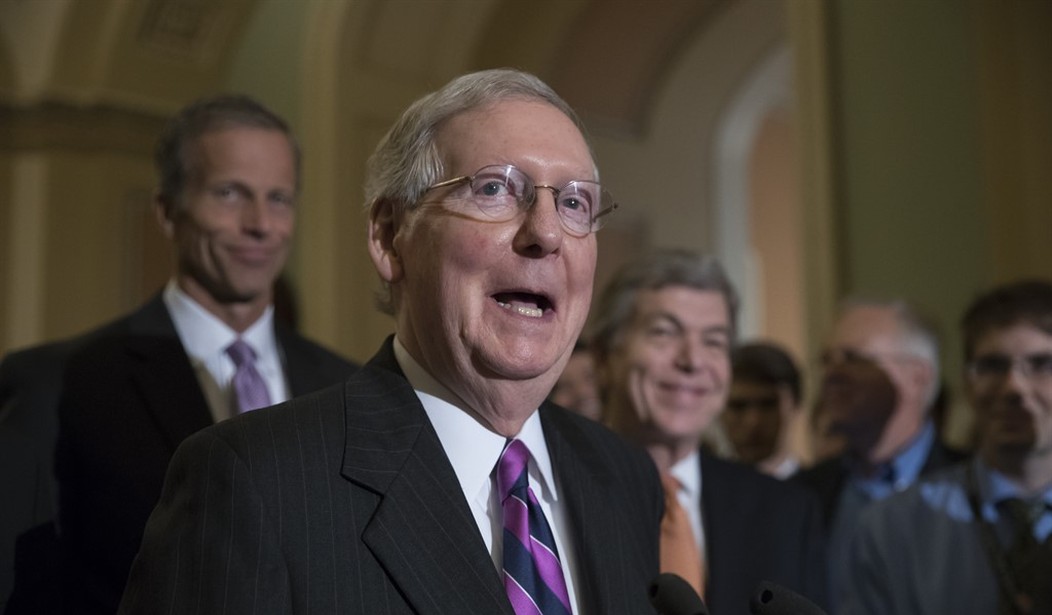Job number one for Congress, as I noted in a recent column, is repealing Obamacare. But cutting taxes is a close second.
Of course, the whole system needs an overhaul. We want to unleash economic growth and prosperity. Tax cuts are a crucial first step toward that, but we need full reform to get us across the finish line.
U.S. tax rates, simply put, are too high. Combined marginal rates for some individuals and capital investments can exceed 50 percent, tax experts Romina Boccia and Adam Michel note in a recent paper.
Our business tax system is particularly bad. American corporations face one of the highest tax rates in the world. They also must grapple with one of the worst systems for business deductions of investment expenses.
Some Americans may hear that and think, well, big deal. Those big companies can afford it. And how does it really affect me? Very directly: 70 percent of all business taxes end up being paid by workers through lower wages.
Remember, we’re all in the same economy. Higher marginal tax rates discourage additional work. They curtail entrepreneurship. They reduce savings and investment. That slows economic growth as a whole, and that affects all of us.
Or take business deductions. But not allowing the deductions of all expenses in the year they are incurred, Boccia and Michel point out, the tax code makes it more expensive for companies to invest. Investors wind up with lower returns. That impedes wage growth and slows job creation.
The problem is, we have a tax system so incredibly complex that even the people in charge of enforcing it can’t always agree on what it means. It’s loaded with so many exemptions, deductions, exclusions and other complexities that many Americans are afraid to prepare their own tax returns.
Recommended
We need, as the saying goes, a tax system that looks like it was designed on purpose. One that is as transparent and simple as possible. That is why I and other conservatives have often urged the adoption of a flat tax, which would enable Americans to figure out exactly what they owe in minutes and with confidence.
Treasury Secretary Steve Mnuchin seems to agree. “We are going to simplify personal taxes where 95 percent of Americans will be able to fill out their tax return on a large postcard,” he recently said. “You can imagine how that makes things easier for them and easier for us at the IRS.”
Yet some lawmakers object to major tax reform. They recoil at the very thought of tax cuts. They insist we can’t afford it -- that cuts would have to be “paid for” by finding new revenue streams for our deficit-laden federal government.
Wrong. Deficits are the result of a spending problem, not a revenue problem.
“Reforming the tax code should not require finding new revenue sources,” Boccia and Michel write. “Persistent deficits are the result of uncontrolled spending, not insufficient taxation. Without spending-based reforms, deficits will continue to grow, requiring still higher taxes in the future.”
That’s why true tax reform must combine the right cuts in tax rates with the right cuts in spending. Indeed, it’s the only way to put the federal budget on a sustainable path. Focusing only on one side of the budget ledger would be a major mistake.
Unfortunately, pro-growth tax reform will face an uphill battle in the Senate, where a 60-vote threshold is necessary for passage. Reform-minded lawmakers would be better off using the budget reconciliation process, which would put their efforts on a fast track and limit needless delays. Instead of needing 60 votes to break a politically motivated filibuster, a simple majority is all that would be required.
“We will have success,” said Secretary Mnuchin. “This is a pass/fail exercise, and we will pass tax reform, period.” For the sake of all taxpayers, let’s hope he’s right.

























Join the conversation as a VIP Member